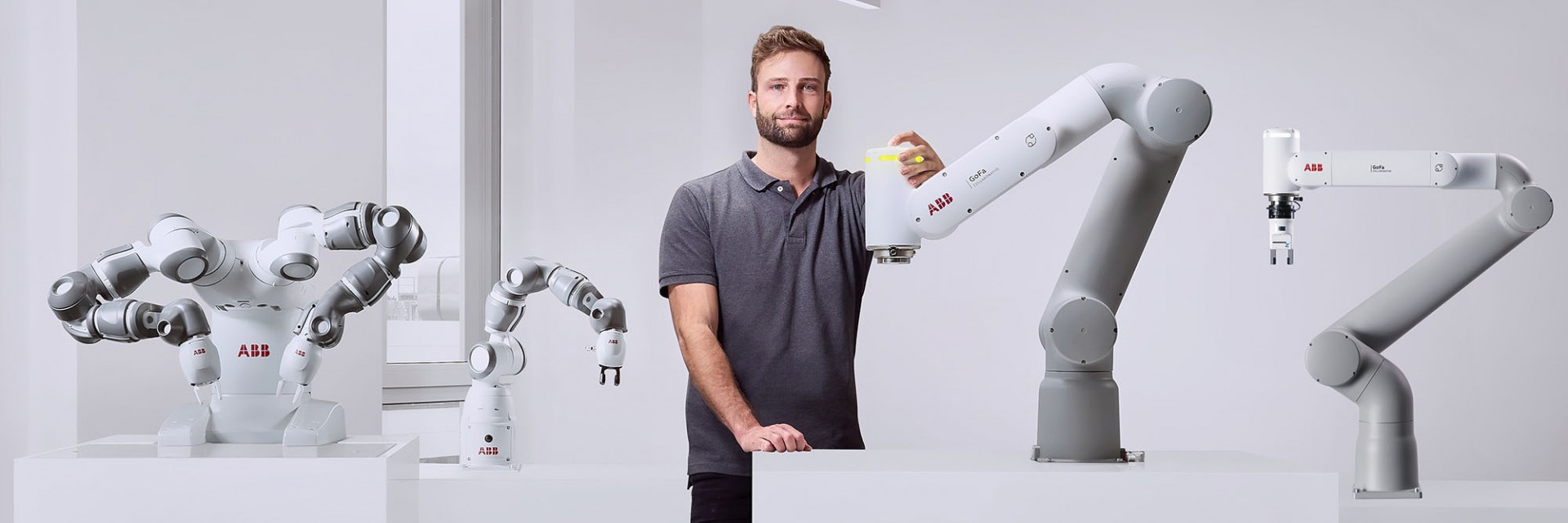ABB robots have made remarkable progress in applying AI technology. By embedding AI into all business lines, they are promoting the upgrade of industrial automation towards intelligence. The specific applications are reflected in the following aspects:
1. Enhance the intelligence level of robots
Natural language interaction: ABB robots have achieved programming and operation through natural language instructions. Users do not need to master professional programming languages to guide the robot to complete tasks such as picking up and placing through dialogue, significantly lowering the operation threshold.
Deep learning and visual recognition: Through deep learning technology, ABB robots can handle issues such as light changes and part differences in complex environments. For instance, in the screwing process, the AI+2D visual screw hole positioning technology has increased the accuracy rate from 20% to nearly 100%, achieving zero-error operation.
Autonomous decision-making and path planning: AI-based robots can autonomously perceive the environment, plan action routes, and dynamically adjust the intensity of their movements. For instance, autonomous mobile robots (AMRs) equipped with 3D vision SLAM technology can navigate intelligently in dynamic environments and achieve precise positioning within 3 millimeters without the need for additional infrastructure.
2. Optimize the production process and efficiency
Quality inspection automation: The AI-driven welding quality inspection system can detect defects at a speed 20 times faster than manual inspection, with an accuracy of up to 22 microns, achieving process integration of "welding and inspection simultaneously", and significantly enhancing production efficiency.
Predictive maintenance: based on failure physical models and AI learning evaluation standards, ABB robots have a fault prediction accuracy rate of 99.9%, and can issue early warnings 1 to 3 months in advance, helping enterprises order spare parts in advance, optimize production plans, and achieve zero-interruption production.
Production process optimization: AI technology enables robots to adjust their action paths and optimize collaboration strategies based on real-time data. For instance, in the automotive manufacturing industry, AI robots can independently complete tasks such as welding and assembly, reducing human intervention and enhancing overall production efficiency.
3. Expand application scenarios and industry coverage
Complex environment operations: In the field of logistics and warehousing, AI robots can perform tasks such as sorting scattered incoming materials and dynamic path planning that are difficult to achieve with traditional methods, adapting to highly variable working environments.
Medical and laboratory automation: In the intelligent laboratory jointly established by ABB and XTALpi, over 100 collaborative robots use AI technology to complete sample transportation, testing, and quality control, enhancing experimental efficiency and safety.
Empowering Small and medium-sized enterprises: The integration of AI technology has lowered the threshold for using robots, enabling small and medium-sized enterprises to deploy automation solutions without the need for professional programmers and promoting the popularization of industrial automation.
4. Promote industrial ecosystem innovation
AI and Robotics Integration Project: ABB has advanced over 100 projects that combine AI and robotics, covering both analytical AI and generative AI, to promote the practical application of these technologies in actual production.
Open cooperation and ecosystem construction: By collaborating with technology companies such as NVIDIA to develop digital twin platforms, ABB utilizes AI technology to achieve traceability analysis of production data, further enhancing the management level of production lines.
Talent cultivation and education: ABB collaborates with over 100 institutions worldwide to incorporate robot programming and operational skills into their teaching systems, aiming to cultivate professional talents for AI-driven industrial automation.

